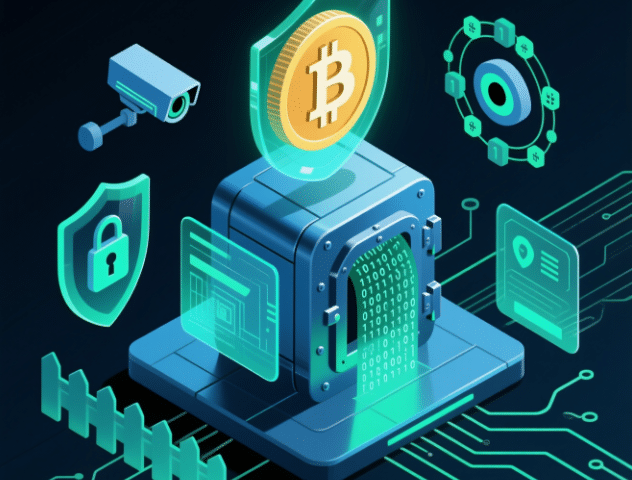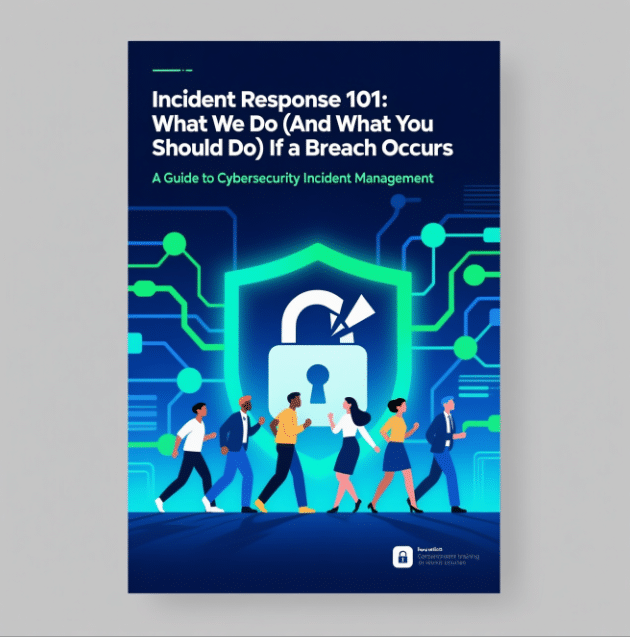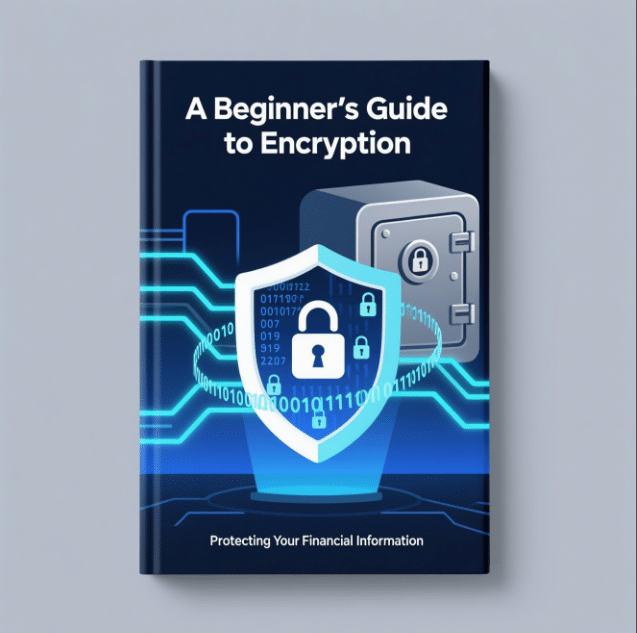
The Ripple Effect: How a Single Weak Link Can Sink Your Crypto Fortune
August 23, 2025
Title: Social Engineering: The Invisible Hack – How to Protect Your Crypto from Human Manipulation
August 23, 2025Let’s be honest for a second. The world of cryptocurrency is exhilarating. It’s a frontier of financial freedom, decentralized innovation, and incredible potential. But with great power comes great responsibility—specifically, the responsibility of being your own bank.
This isn’t like calling your credit card company to reverse a fraudulent charge. In crypto, if your digital assets are stolen due to a security lapse, they are often gone for good. This reality can feel daunting, but it shouldn’t be discouraging. It should be empowering.
Here at Exbix, we believe that security is the foundation upon which the entire crypto experience is built. It’s not just about our robust, enterprise-level security protecting your assets on our exchange; it’s about empowering you with the knowledge to protect your assets everywhere.
This guide is your comprehensive manual for navigating the crypto world with confidence. We’ll move beyond the simple “not your keys, not your crypto” mantra and give you actionable, practical steps to fortify your digital fortune.
The Mindset: Why Crypto Security is Non-Negotiable
Before we dive into the tools and techniques, let’s adopt the right mindset. Traditional finance has safety nets—banks, insurance (like FDIC), and regulators. Crypto is purposefully trustless and decentralized. You are the sole custodian of your security.
This means you are the primary target for attackers. They use sophisticated methods like phishing, social engineering, and malware, but they often prey on the simplest of human errors: reused passwords, careless clicks, and misplaced backup phrases.
Think of your crypto security not as a single wall, but as a series of concentric circles—a defense-in-depth strategy. Each layer you add makes it exponentially harder for an attacker to reach your core assets.
Layer 1: Fortifying Your Exchange Account (Your First Line of Defense)
For most of us, our journey begins on a trusted exchange like Exbix. This is where you convert fiat to crypto and often hold assets short-term. Securing this account is your critical first step.
1. The Impenetrable Password & Password Manager
- The Problem: Using a simple, memorable password or (even worse) reusing a password from another site is like locking your vault with a key under the doormat. Data breaches are common; if you reuse credentials, a breach at a social media site can give attackers the keys to your exchange account.
- The Solution: Create a long, complex, and unique password for your Exbix account. We’re talking a random combination of upper and lowercase letters, numbers, and symbols (e.g.,
Y7$m!pL9@qRs#v2W). Memorizing this is impossible, and that’s the point. - The Tool: Use a password manager. Tools like Bitwarden, 1Password, or LastPass generate and store these complex passwords for you. You only need to remember one master password. This is the single biggest security upgrade you can make.
2. Two-Factor Authentication (2FA): The Guardian at the Gate
A password is something you know. 2FA adds a second layer: something you have.
- Avoid SMS 2FA: While better than nothing, SMS-based 2FA is vulnerable to SIM-swapping attacks, where a hacker tricks your carrier into porting your number to their device.
- Embrace Authenticator Apps: This is the gold standard. Apps like Google Authenticator or Authy generate a time-based, one-time code (TOTP) on your device. Even if someone has your password, they can’t get this code without physical access to your phone. Enable this on your Exbix account and every other service that supports it.
- The Ultimate: Hardware Security Keys: For maximum security, consider a hardware key like a YubiKey. It’s a physical device you plug in or tap to log in. It’s immune to phishing attacks that can trick you into entering a code on a fake website.
3. Vigilance Against Phishing: Don’t Take the Bait
Phishing is the #1 method used to steal credentials. You receive an email or message that looks legitimately from Exbix, urging you to click a link to “verify your account” or “claim a reward.”
- Always check the URL: Hover over any link before clicking. Does it lead to the exact official Exbix website (
https://www.exbix.com), or a clever fake likeexbix-login.com? - We will never ask for your password or 2FA seed via email, Telegram, or Twitter DMs.
- Bookmark the official Exbix login page and only use that.
Layer 2: Mastering Self-Custody: Wallets and Private Keys
When you’re ready to hold crypto for the long term, moving it off-exchange to a personal wallet is a wise decision. This is where the famous phrase “not your keys, not your crypto” comes from.
Understanding Keys:
- Public Key (Your Address): This is like your account number. You can share it freely for people to send you crypto.
- Private Key: This is like the master key to your safe deposit box. Anyone with this key has complete and irreversible control over your assets. It must never be shared, ever.
- Seed Phrase (Recovery Phrase): This is a human-readable version of your private key, usually a 12 or 24-word list. This phrase generates all your private keys. Protecting this phrase is protecting all your assets.
Types of Wallets:
1. Hot Wallets (Software Wallets)
These are connected to the internet and are convenient for frequent transactions.
- Examples: Mobile apps (Trust Wallet, Exodus) or browser extensions (MetaMask).
- Best for: Smaller amounts, day-to-day spending, and interacting with DeFi apps.
- Security Tips: Only download wallets from official app stores or websites. Keep your software updated. Treat them like a checking account, not your life savings.
2. Cold Wallets (Hardware Wallets)
These are physical devices (like a USB drive) that store your private keys offline, away from any internet connection.
- Examples: Ledger Nano series, Trezor.
- Best for: Long-term storage of significant amounts of crypto—your “savings account.”
- How it works: You sign transactions on the device itself, which then gets broadcast to the network via a connected computer. Your private key never leaves the device, making it immune to computer viruses.
The Sacred Ritual: Handling Your Seed Phrase
This is the most important part of self-custody.
- Never Digitize It: Do not type it into a notes app, email it to yourself, store it in the cloud, or take a screenshot. The digital world is vulnerable.
- Write It Down: Use the recovery sheet that comes with your wallet and write the words clearly with a pen.
- Use a Metal Backup: Paper can burn, get wet, or degrade. For ultimate safety, etch your seed phrase onto a fire-and-water-resistant metal plate (like CryptoSteel or Billfodl).
- Store It Securely: Keep it in a safe, a safety deposit box, or another secure, private location. Never share it with anyone.
- Avoid “Quick” Setup: Take the time to write down the phrase yourself. Don’t let a pre-printed card trick you.
Layer 3: Operational Security (OpSec) for Daily Life
Security extends beyond software and hardware into your daily habits.
- Device Hygiene: Use antivirus software, keep your operating system and browsers updated, and be cautious about the software you install. A malware-infected computer can log your keystrokes or hijack your clipboard, changing a crypto address you’re about to send funds to.
- The “Send a Test Transaction” Rule: When sending a large amount of crypto to a new address, always send a small test amount first. Confirm it arrives correctly at the intended destination before sending the rest.
- Beware of Social Engineering: Be skeptical of “too good to be true” offers, fake support accounts on Twitter, and strangers in DMs offering help. Official support will never DM you first.
- Smartphone Security: Use a strong PIN/password and biometrics (fingerprint/face ID) to lock your phone. Your authenticator app and email are gateways to your accounts.
What Exbix Does to Keep You Safe
While you build your personal security layers, know that we are doing our part. At Exbix, we employ:
- Cold Storage: The vast majority of user funds are held in offline, multi-signature cold wallets.
- Multi-Signature Technology: Requires multiple private keys to authorize a transaction, preventing a single point of failure.
- Continuous Monitoring: Our systems operate 24/7 to detect and prevent fraudulent activity.
- Regular Audits: Our security practices are regularly reviewed by independent third-party firms.
Conclusion: Your Security is a Journey
Securing your cryptocurrency isn’t a one-time task; it’s an ongoing practice. It might seem complex at first, but each step you take becomes a habit, building an impenetrable shield around your digital assets.
Start today. If you haven’t already, go enable 2FA on your Exbix account with an authenticator app. Then, consider your long-term strategy and invest in a hardware wallet for your core holdings.
The goal isn’t to live in fear, but to operate from a place of knowledge and confidence. By taking ownership of your security, you are truly embracing the powerful, self-sovereign future that cryptocurrency promises.
Welcome to the new frontier. Stay safe out there.
The Exbix Team





